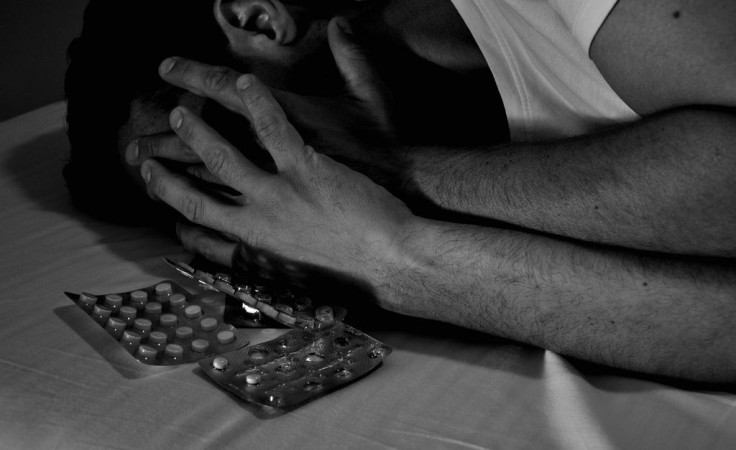Unrecognized Bipolar Disorder: 10% Of People With Anxiety, Depression Are Also Bipolar

Health care practitioners are still battling to identify and diagnose those suffering from bipolar disorder, but a new study indicates they may only need to look at those who have already been diagnosed with depression or anxiety.
The study, conducted by researchers from Leeds and York Partnership NHS Foundation Trust and the School of Medicine at the University of Leeds, has found that around 10 percent of patients in the United Kingdom who are prescribed antidepressants for depression or anxiety are also suffering from unrecognized bipolar disorder.
"Bipolar disorder is a serious problem, with high levels of disability and the risk of suicide. When it is present in depressed patients it can easily be overlooked,” said Dr. Tom Hughes, Consultant Psychiatrist at Leeds and York Partnership NHS Foundation Trust and the University of Leeds, in a statement “Under-diagnosis and over-diagnosis of illnesses bring problems. Our General Practitioners are the greatest part of the best nationwide health service in the world. We hope this study will be of some help to them and to their patients in helping the better recognition of this important and disabling condition."
Hughes and his colleagues recruited young adults from general practices in the U.K. Around 10 percent of patients between the ages of 16 and 40 who were prescribed antidepressants for depression or anxiety were also suffering from unrecognized bipolar disorder. Younger patients and those with a history of severe episodes of depression were at a higher risk for bipolar disorder.
Researchers weren’t all that surprised with the results of their analysis. Symptoms of bipolar disorder are often similar to that of depression or even boderline personality disorder. These patients tend to experience periods of symptoms, including increased energy and activity, increased confidence, over-talkativeness, or being easily distracted, but don’t disclose them to their doctors because they believe they are inconsequential. Unfortunately, this leads to some patients receiving an improper prescription for antidepressants without mood-stabilizing properties.
While ketamine as a treatment option stays in the research phase, there are mood stabilizing drugs out there, like lithium, which can be used to treat bipolar disorder and other severe conditions.
“Dr. Tom Hughes and his colleagues from Leeds and York Partnership NHS Foundation Trust recommend that general practitioners look carefully at patients with depression and anxiety disorders, particularly younger patients and those who are not doing well with their treatment,” said Professor Roger Jones, Editor of the British Journal of General Practice (BJGP). “By reviewing life histories for evidence of symptoms this could provide people with better treatment and quicker recovery."
Hughes’ research team recommends that healthcare professionals conduct a more thorough review of a patient’s psychiatric history with depression and anxiety, especially young patients and those with severe episodes. They can also explore other potential risk factors that could influence a sudden and unexpected bipolar episode, including the patient's upbringing, brain structure, environment, and a history of substance abuse.
Source: Hughes T, et al. Unrecognised bipolar disorder among UK primary care patients prescribed antidepressants: an observational study. British Journal of General Practice. 2016.



























